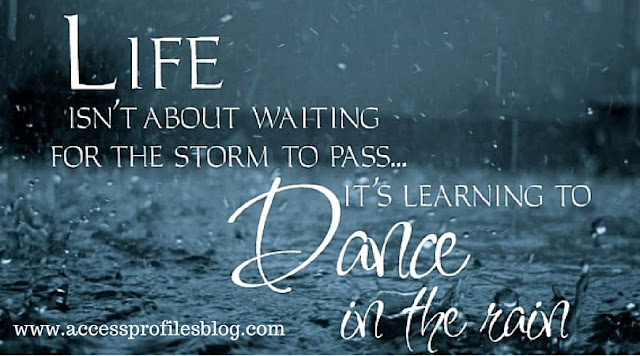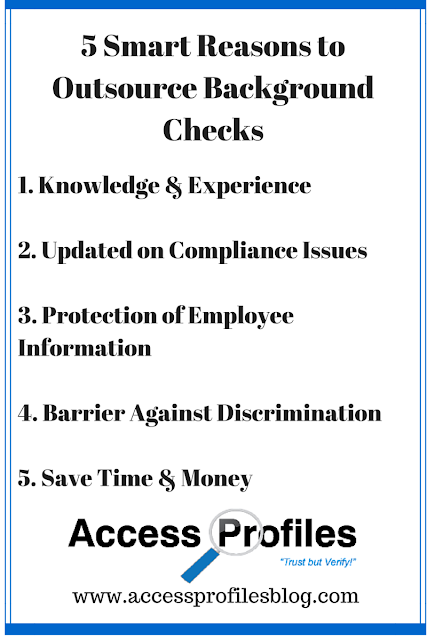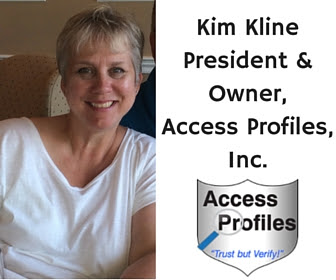 |
| Contact Me Before You Rent Your Property! |
Investing in real estate is a common financial goal. You may start with something as simple as buying a single family home, condo, or duplex. Or it may be as ambitious as investing in an entire apartment building. Whatever the case may be, the chance to own property is often considered part of the “American Dream”.
However, when it comes time to find renters to make your investment profitable, it can soon become a nightmare.
Instead of finding the perfect tenants, you discover that they are anything but what you expected. They may be constantly late in paying their rent. Or they are the continual subject of complaints from your other tenants or neighbors. Or, worst of all, you discover they have ruined your property or been party to other damaging or illegal behavior.
No matter what the problem, your dream of securing your financial future is now in jeopardy.
Don’t make this mistake!
Screening Prospective Tenants is Key to Protecting Your Property and Your Reputation! “Tweet This”
As a landlord, it is your responsibility to do background checks on anyone you are considering as renters. Not only is it good business to protect your property, it is also an essential step in protecting your other tenants or neighbors.
Knowing your potential renter’s past simply makes sense.

This 2 part series is dedicated to Helping You Discover Good Practices for Choosing Your Tenants.
In Part 1, You will find out What You Need to Do Before Renting Your Property. Then, in Part 2, you will learn How you can Use Your Background and Credit Check to Make an Informed Tenant Decision!
Before you even consider finding renters, there are critical steps you should take to protect you and your property.
What You Need to Do Before You Rent Your Property
- Hire a Screening Company to do the Tenant Background Check
According to the FCRA (Fair Credit Reporting Agency), you should hire an outside background check company to screen your applicants. The FCRA classifies these companies as Consumer Reporting Agencies.
These agencies will be well versed in FCRA guidelines when it comes to screening your tenants. They will be able to guide you in your applicant’s rights concerning background checks and help keep you compliant.
Not sure what to look for when hiring a background check company? These 5 Tips will help you find the Best Background Check company for You!
The cost of a Tenant Background Check will vary. It is dependent upon what services you request and the fees related to accessing those services. A good background check company will help you decide what you need based on your prospective tenant’s application information.
Worried about the cost of the tenant background check? You can request that any potential renters cover the cost themselves as part of the application fee.
If you choose to cover this expense yourself, a background check is still a cost-effective step in renting your property. The key is to focus the scope of the background check on the information that best meets your specific needs.
Find out more in “Think a Good Background Check Costs too Much? Think Again!”.
Getting your background check company in place before you even advertise your rental makes sense.
- Obtain a Completed Rental Application
This is the first step in getting the information you need from any prospective tenant.
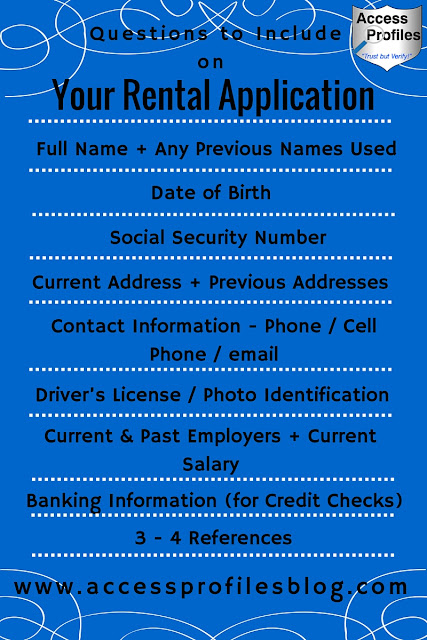 |
| Find Answers to Your Questions about Tenant Background Checks Here! |
A good application will request your prospective tenant’s:
- Full Name + Any Previous Names Used
- Date of Birth
- Social Security Number
- Current Address + Previous Addresses for the past 7-10 Years - including dates of residence and contact information
- Contact Information - Phone / Cell Phone / email
- Driver’s License / Photo Identification - Make a copy for Your Records
- Current & Past Employers + Current Salary - including dates of employment & employer contact information
- Banking Information (for Credit Checks)
- 3 - 4 References - ideally 2 Personal and 2 Professional
Make sure that your prospective tenant fills out the application entirely and, most importantly, legibly.
- Obtain a Signed Release for the Background and Credit Check
It is best to do this at the the same time your potential tenant is completing the rental application. You are free to use a release of your own, but most times it is easier to use one provided by your chosen screening company.
FCRA guidelines require that landlords obtain written permission for a background check from all prospective tenants. This assures that all renters know a background check is being performed and consent to the process. You cannot proceed with the background check without this release being signed.
If your prospective renter refuses to sign the background check release, you should stop the renting process immediately and move on to another potential tenant.
- Interview Your Prospective Tenant
A face-to-face meeting is the best way to get to know a little more about your potential renter.
The first thing you should take note of is whether they show up for the interview on time!
Then you should ask questions that will give you a better picture of them as a possible tenant.
Those questions could include:
Are you able to pay the deposit required to move in?
Be clear on whether you expect first and last month’s rent plus security deposit, or any variation of these.
Why are You Moving from your current residence?
Do You Smoke?
You have every right to require a renter to not smoke inside your property.
Do You have Pets?
It up to you whether to allow all pets, certain pets, etc. However, you will need to consider any laws governing service animals.
Who will be Moving in with You?
It is within your right to set up a maximum occupancy policy for your property.
Pay attention to “How” they answer your questions just as much, if not more, as “What” they answer. You, along with your other tenants and the property’s neighbors, will be dealing with your renter. Choosing someone who is friendly and forthcoming is a plus.
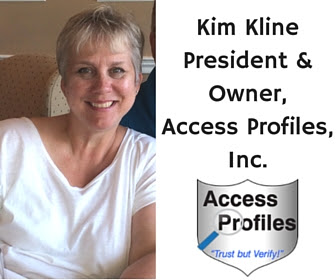 |
- Determine the Scope of Your Investigation and Run Your Background Check
This is where hiring a qualified Background Check company makes all the difference. They are experienced enough to guide you in deciding the best scope of the investigation for your needs.
Deciding what to check starts with your prospective tenant’s application. The information included in that application will help you determine where to begin.
The most frequently requested item is a criminal background check. Here you will be looking for past convictions that would directly impact your decision to rent to this individual. Examples would be records for felony convictions, violent behavior, or drug offenses. Checking the sex offender list is also crucial.
Doing a civil court record check is also good business. Learning whether your applicant has ever been evicted due to late or non-payment of rent makes sense. You can expand this search to include any lawsuits either file by or filed against your applicant.
Learn more about Civil checks and what they can do for you in; “Civil Court Record Checks ~ The Forgotten Screening Tool”!
Other possible items to check during your tenant screening could include verifying past and present employers, contacting any previous landlords, or checking personal references. These can be done by you or you can outsource them to your background check company.
Checking with your applicant’s employer will help you determine whether the information they listed on their application is true. It will also help you discover whether their income is sufficient to pay the rent.
Contacting any previous landlords will tell you a lot about what your applicant will be like as a tenant. You can find out if they paid their rent or if they damaged the property in any way. The most telling question you could ask is if they would rent to your applicant again.
Checking references is also a good step. You may believe that contacting references listed by your applicant is a waste of time. After all, your applicant wouldn’t list them unless they only had good things to say, right?
That is not always the case. A good background check company will know what questions to ask and how to ask them to get the answers you need.
At your request, they can also develop additional references that were not listed by your applicant.
- Run the Credit Check
A credit check will supply you with information on your applicant’s financial stability. It will include things like bankruptcies, foreclosures, and certain lawsuits. You will also see their credit score.
There are 3 major credit reporting agencies you can use to obtain this information ~ Equifax, Experian, and TransUnion. As a licensed landlord, you are able to set up an account with the agency of your choice to run a tenant credit check.
There is no doubt screening your prospective tenants makes sense. Discovering as much about an applicant before taking the leap and allowing them to rent your property is simply good business.
In Part 2 of this series, you will discover How you can Use Your Background and Credit Checks to make a sound tenant decision!
I have added Tenant Screening to my services!
I am focused on helping you rent your property more safely and effectively ~
and always with your bottom line in mind!

Find out how I can Help You.
Learn more About Me too!
Authored by

Please Pay it Forward and Share this article! Thanks!


